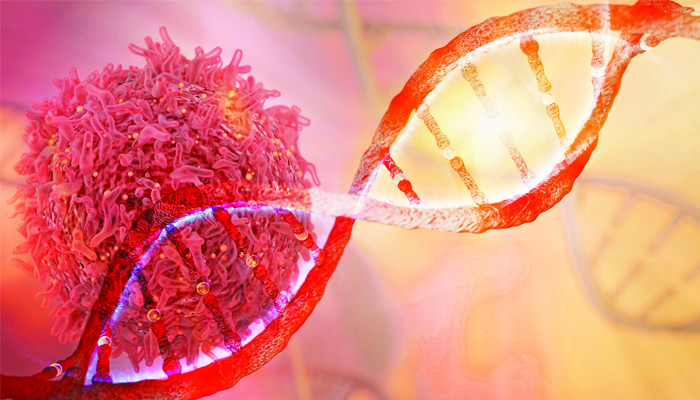
Muscat: People with genetic disorders and cancer can now be diagnosed and treated early, thanks to new research and the latest medical equipment available at the Royal Hospital.
The research, which is focused on diagnostics and laboratory analysis, aims to work hand-in-hand with medical devices available to counter the high rates of genetic disorders seen in the country, as well as record new causes of such ailments, said Dr Musallam bin Saeed Al Araimi, the head of the Department of Genetic Counselling, Clinical Services, and Genetic Education at the National Centre for Genetic Health at the Royal Hospital.
“Thanks to these efforts we were able to help 4,119 patients in 2020, up from 1,732 in 2016,” he said.
“Oman is among the countries that has a high occurrence rate of genetic diseases. For a child in Oman, the possibility of being born with a genetic disease is between 5.4 and seven per cent. Globally, however, this percentage does not exceed 4.4 per cent.”
“There is also an existing plan to use genetic diagnosis to analyse cancerous tissue,” added Al Araimi.
“This helps increase the effectiveness of diagnosis, treatment and evaluation of some common kinds of cancer in Oman.”
More than 300 variants of genetic mutations have been detected in Oman, this includes 150 mutations of new genes and amino sites that are responsible for many of the genetic disorders seen globally, including metabolic disorders, single and multiple genetic disorders, and genetic diseases that have multiple causes.
According to data from 2014 to 2016, genetic flaws inherited from their parents were responsible for 51 per cent of all registered genetic disorders, making this factor the number one cause for genetic ailments in the country. Oman recorded 140 instances of Down syndrome in 2014 and 150 in 2015. Metabolic disorders caused by hereditary endocrine problems and nutritional problems accounted for 20.7 per cent of genetic diseases.
Thirty-seven per cent of premature deaths in babies were due to severe genetic congenital disorders. Less severe occurrences of genetic disorders were the reason for 10 per cent of infant deaths and 52 per cent of the deaths of older children. “Genetic disease of all kinds constitutes an important factor in the causes of hearing, motor, visual, and other disabilities,” said Al Araimi.
“The latest figures indicate that 10 per cent of Omani families have a child with genetic problems that could lead to disability.”
To help treat people with genetic disorders, the Ministry of Health set up the National Centre for Genetic Health in 2012, after plans for the same were drawn up in 2006.
There are 59 staff at the centre, including doctors specialised in genetic medicine.
The centre has a number of services to treat people with genetic disorders, including genetic medicine, counselling, screening for cancer caused by genetic defects, developmental medicine, child development and evaluation, and also expanded genetic laboratory facilities.
Among the machines available at the labs are a Hamilton Device, which helps extract DNA from blood samples and provides results in record time. The centre also developed a micro-irrigation, and a microcellular device, which display in chromosomes the anatomic defects that cause genetic disorders.
The setting up of this lab and the research and facilities within are part of the efforts of Oman Vision 2040.
“The centre’s laboratory services consist of chromosomal analysis services to identify the causes of genetic diseases with chromosomal abnormalities,” said Al Araimi.
“Individual and multiple genetic diagnostic services use third-generation techniques to analyse the human genome to identify genetic mutations that cause genetic diseases with genetic abnormalities of various forms.
“Laboratory research also contributes to the centre’s diagnosis of cancers caused by hereditary factors,” he said. “There are plans for expansion in the provision of integrated health services. These include expanding the clinics available to analyse issues such as heart ailments caused by genetic issues, as well as other disorders that cannot be diagnosed with our current facilities.”
The National Centre for Genetic Health has for the first time diagnosed 160 rare genetic cases over the past five years. This came about as part of efforts to provide accurate diagnosis of people with such issues, said Dr Alia bint Mahmoud Al Hosani, a molecular specialist in genetics and human genomics.
“Genetic diagnosis services include a wide range of neurological diseases, muscular dystrophy diseases, growth and development syndromes, skeletal dysplasia, dermatophytosis bullosa, immunodeficiency diseases, metabolic diseases and other rare genetic diseases caused by defects to genes,” she said.
“This test was developed at the National Centre for Genetic Health and included in the services available from the Royal Hospital,” added Al Hosani. “It aims to serve a large segment of people, from those who want diagnosis of a rare genetic disease, to young people who are about to marry, and have a family history of a particular disease, or parents who carry a certain gene, but want to have healthy babies.”
The centre has also found chromosomal imbalances in people that are associated with various ailments, including congenital malformations, Down syndrome, Edwards’s syndrome, and leukemia.